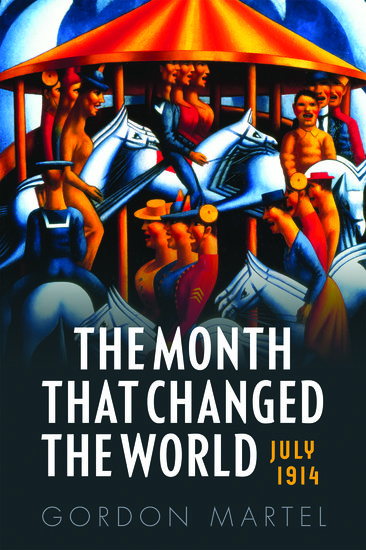July 1914 was the month that changed the world. On 28 June 1914, Archduke Franz Ferdinand was assassinated, and just five weeks later the Great Powers of Europe were at war. But how did it all happen? Historian Gordon Martel, author of The Month That Changed The World: July 1914, is blogging regularly for us over the next few weeks, giving us a week-by-week and day-by-day account of the events that led up to the First World War.
By Gordon Martel
By mid-day Friday heads of state, heads of government, foreign ministers, and ambassadors learned the terms of the Austrian ultimatum. A preamble to the demands asserted that a ‘subversive movement’ to ‘disjoin’ parts of Austria-Hungary had grown ‘under the eyes’ of the Serbian government. This had led to terrorism, murder, and attempted murder. Austria’s investigation of the assassination of the archduke revealed that Serbian military officers and government officials were implicated in the crime.
A list of ten demands followed, the most important of which were: Serbia was to suppress all forms of propaganda aimed at Austria-Hungary; the Narodna odbrana was to be dissolved, along with all other subversive societies; officers and officials who had participated in propaganda were to be dismissed; Austrian officials were to participate in suppressing the subversive movements in Serbia and in a judicial inquiry into the assassination.
When Sazonov saw the terms he concluded that Austria wanted war: ‘You are setting fire to Europe!’ If Serbia were to comply with the demands it would mean the end of its sovereignty. ‘What you want is war, and you have burnt your bridges behind you’. He advised the tsar that Serbia could not possibly comply, that Austria knew this and would not have presented the ultimatum without the promise of Germany’s support. He told the British and French ambassadors that war was imminent unless they acted together.

But would they? With the French president and premier now at sea in the Baltic, and with wireless telegraphy problematic, foreign policy was in the hands of Bienvenu-Martin, the inexperienced minister of justice. He believed that Austria was within its rights to demand the punishment of those implicated in the crime and he shared Germany’s wish to localize the dispute. Serbia could not be expected to agree to demands that impinged upon its sovereignty, but perhaps it could agree to punish those involved in the assassination and to suppress propaganda aimed at Austria-Hungary.
Sir Edward Grey was shocked by the extent of the demands. He had never before seen ‘one State address to another independent State a document of so formidable a character.’ The demand that Austria-Hungary be given the right to appoint officials who would have authority within the frontiers of Serbia could not be consistent with Serbia’s sovereignty. But the British government had no interest in the merits of the dispute between Austria and Serbia; its only concern was the peace of Europe. He proposed that the four ‘disinterested powers’ (Britain, Germany, France and Italy) act together at Vienna and St Petersburg to resolve the dispute. After Grey briefed the cabinet that afternoon, the prime minister concluded that although a ‘real Armaggedon’ was within sight, ‘there seems…no reason why we should be more than spectators’.
Nothing that the Austrians or the Germans heard in London or Paris on Friday caused them to reconsider their course. In fact, their general impression was that the Entente Powers wished to localize the dispute. Even from St Petersburg the German ambassador reported that Sazonov’s reference to Austria’s ‘devouring’ of Serbia meant that Russia would take up arms only if Austria seized Serbian territory and that his wish to ‘Europeanize’ the dispute indicated that Russia’s ‘immediate intervention’ need not be anticipated.
Berchtold made his position clear in Vienna that afternoon: ‘the very existence of Austria-Hungary as a Great Power’ was at stake; Austria-Hungary must give proof of its stature as a Great Power ‘by an outright coup de force’. When the Russian chargé d’affaires asked him how Austria would respond if the time limit were to expire without a satisfactory answer from Serbia, Berchtold replied that the Austrian minister and his staff had been instructed in such circumstances to leave Belgrade and return to Austria. Prince Kudashev, after reflecting on this, exclaimed ‘Alors c’est la guerre!’
Gordon Martel is a leading authority on war, empire, and diplomacy in the modern age. His numerous publications include studies of the origins of the first and second world wars, modern imperialism, and the nature of diplomacy. A founding editor of The International History Review, he has taught at a number of Canadian universities, and has been a visiting professor or fellow in England, Ireland and Australia. Editor-in-chief of the five-volume Encyclopedia of War, he is also joint editor of the longstanding Seminar Studies in History series. His new book is The Month That Changed The World: July 1914.
Subscribe to the OUPblog via email or RSS.
Subscribe to only history articles on the OUPblog via email or RSS.


Recent Comments
There are currently no comments.